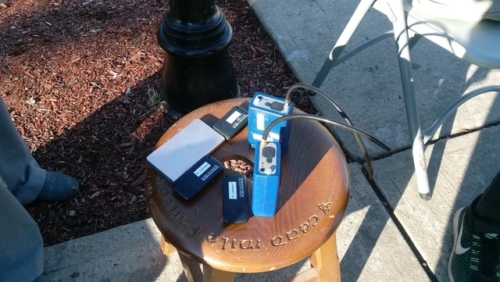EOHSI to provide technical guidance to Jersey City's "heat islands" project this summer

Air quality monitoring equipment
Sustainable JC, a network of community groups and individuals advocating for more environmentally friendly practices and policies in Jersey City, this summer will map heat “islands,” areas of unusually high temperature and air pollution triggered by a disproportionate area of heat-absorbing asphalt and a paucity of trees, in Greenville and Bergen-Lafayette.
Sometime in late July, when the hottest day of the year is forecast, residents of Greenville and Bergen-Lafayette will see a small mobile convoy outfitted with tubular-shaped devices measuring air temperature and quality. The focus of the project—part of a $10,000 Unilever 2021 Change Makers & Do-Gooders Community Grant—is Wards A and F since the “urban heat island effect” has been shown to disproportionately exist in minority communities.
The Unilever grant will also fund heat island assessments in Elizabeth (with help from Groundwork Elizabeth) and Newark, (aided by South Ward Environmental Alliance). Providing technical guidance to all three communities are CAPA (Climate, Adaptation, Planning, Analytics) Strategies, a limited liability corporation based in Portland, Ore., and Rutgers Environmental and Occupational Health Sciences Institute, of New Brunswick.
Robert Laumbach, an associate professor at Rutgers School of Public Health who also does clinical research with EOHSI, noted that there’s already plenty of scientific evidence showing that much of the Garden State’s air quality is anything but sweet-smelling.
(Source: Jersey City Times – May 11,2021)
Copyright © 2021, Rutgers, The State University of New Jersey

